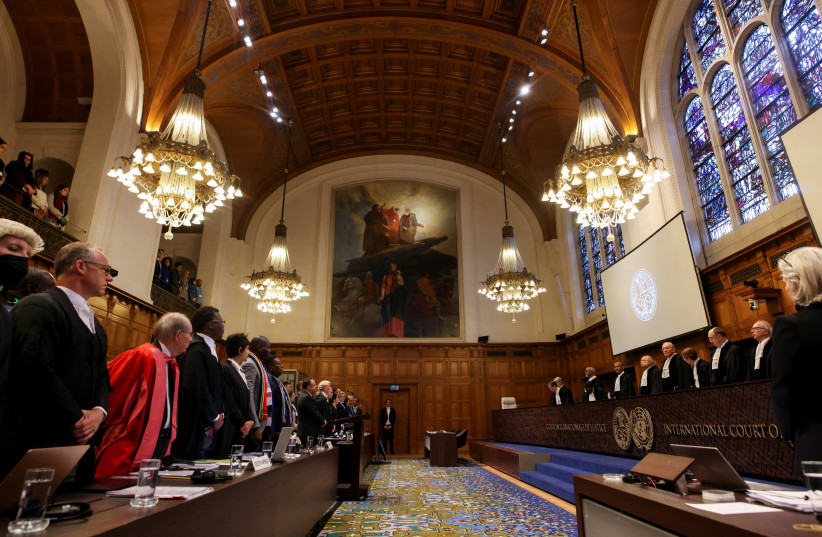It’s been 100 days. 100 days of war, worry, sorrow, and the absurd, the culmination of which took place on the global stage at The Hague.
Watching South Africa use extreme statements said by our politicians as though showing a highlight reel to paint Israel in a genocidal light was absurd. Watching Israel defend itself was equally as absurd, though perhaps one good thing it did was bring terms back to the vernacular of the general public, terms like “genocide,” “international law,” and “compliance,” long-held captive as empty slogans by the Left. Perhaps that awareness is worth it.
The absurdity is that we need to keep defending an offensive that we didn’t want, for a war we didn’t start, which has the potential to light up the rest of the region. The horrors, and the glee with which those horrors were carried out, were put on display this week ahead of the trial.
Some 1,200 of our people were murdered in one long continuous act of terror, and from then, as one Israeli news anchor put it in an interview earlier in the war, the clock began to tick, and very quickly ran out, it seems, on Israel’s legitimacy as a victim, on the rightful excuse it has to fight back.
South Africa’s arguments on Thursday proved that the clock has long since run out in the eyes of many in the international community; perhaps it never really existed in the first place. And, that the destruction and tragedy out of Gaza is so much more visibly powerful, a much more convincing narrative of victimhood; as though nuance cannot exist in this conflict.

Israel’s legal team flipped that narrative on its head, showing that South Africa effectively functions as the legal arm of the Hamas terrorists who carried out the massacres of October 7.
International law expert Tal Becker’s opening words at The Hague righted this absurdity: “If there have been acts that may be characterized as genocidal, then they have been perpetrated against Israel. If there is a concern about the obligations of states under the Genocide Convention, then it is about their responsibilities to act against Hamas’s proudly declared agenda of annihilation, which is not a secret, and is not in doubt.”
What choice does Israel have?
But even if you put that aside, even if you disagree; what is happening in Gaza is a tragedy. However, it is not one caused by Israel’s hand; the heaps of weapons, tunnels, and infrastructure, all used for terrorist activities against Israel instead of building up prosperity and pushing for a higher quality of life for Palestinians in Gaza, show that this never stood a chance. Gaza is one big, booby-trapped tunnel-filled enclave. What choice does Israel have, and what choice does it have in how the world sees it?
We know that if Hamas were to hold up their weapons and return our hostages, this would all end in a second.
Ambassador to the UN Gilad Erdan put the absurdity up as a mirror to the international community, in a speech marking 100 days since October 7 at UN headquarters in New York on Friday: “100 days have passed since the massacre, and not even one discussion was held on releasing the hostages. 100 days where 136 women, children, and elderly are being held in Hamas tunnels, and there is yet to be a single discussion dedicated to their release. Not even one. Hamas has not even allowed the Red Cross to visit the hostages. We are talking about one of the worst war crimes there is!”
With so much going on and so much that has happened over the last 100 days, there can be times when we forget, but we cannot: 100 days and counting of our innocent brothers and sisters who were taken hostage, against their will and without provocation, with barely any signs of life and no indication of humanity from their captors otherwise. This needs to be something we wake up and go to sleep with until they are home.
That is what we are fighting for; that is what we have been fighting for all along, to preserve life. It’s been 100 days too many; bring them home.
